“If you really want to hear about it, the first thing you’ll probably want to know is where I was born, what my childhood was like, how my parents were occupied, nice and all. Besides, I’m not going to tell you my whole goddam autobiography or anything. I’ll just tell you about this madman stuff that happened to be ……” – Catcher in the Rye – J D Salinger.
Regional cinemas have always been India’s pride and joy. Rooted in the region’s social milieu successfully showcasing untold stupendous stories of their societies to world at large.
Holding harsh mirror to happenings around for world to see and reflect. Though, anchored in local, their thematic narratives finding universal resonance.
Among regional cinemas, Cinema of Manipur, with legacy of over five decades of fruitful existence, has been one of the flagbearers of India’s other regional language cinemas.
Simple and soulful in their thematic and narrative content they touched upon, Manipuri films have held their own bringing laurels to the State, the region, and the country as a whole.
In recent years, braving the onslaught of Bollywood, Manipuri films have thrown up several engaging and enterprising films winning accolades and appreciation, especially at film festival circuits abroad.
Reiterating the fact that India’s regional language films, modest yet meaningful, are very much alive and kicking, with their Idea of India, holding their stead in an otherwise competitive and commercially oriented cinema canvas.
You have Manipuri filmmaker, Haobam Paban Kumar’s 2016 Loktak Lairembee (Lady of the Lake) shot entirely on fresh water lake of Manipur, spotlighting on existential crisis of a fishing community in the backdrop of eviction drive and armed conflict.
The film featuring in Asia New Currents Section at 21st Busan International Film Festival as also in Berlinale Talent at Berlin Film Festival.
Incidentally, the prodigious filmmaker’s two recent features, Joseph’s Son and Nine Hills One Valley were showcased at Altyn Minbar Karan International Film Festival, September 6-11, in Kazan, Tatarstan, Russia, known for its focus on cultural dialogue and human values.
Joseph’s Son in competition section, and Nine Hills One Valley in non-competition section under category – “The Fate of Indian Tribes,” category.
Both delving into the complexities of Manipur’s multi-ethnic society, presenting narratives resonating deeply with struggles and hopes of the people.
It is in this context one needs to acknowledge and appreciate the latest Manipuri film – Boong – by debutant director Lakshmipriya Devi, which has been making meaningful noises at art house and film festival circuits.
What makes it significant and noteworthy, is Boong ‘little boy’ in Manipuri, comes at a time wherein Manipur ridden by ethnic violence and political uncertainty since May 2023 has been on the boil with no truce in sight. The ethnic violence between Meitei and Kuki-Zo people, dividing, destroying, and displacing people. The distrust and division driving people to seek safer sanctuaries.
The film, which premiered at Toronto International Film Festival (TIFF), in the festival’s flagship Discovery Section, marks an important milestone.
Boong’s participation at TIFF has kindled interest bringing global attention to Manipuri Cinema, offering a glimpse into the State’s rich, cinematic tradition.
Before Boong, two other Manipuri films showcased at TIFF, were the classic Imagi Ningthem by Aribam Syam Sharma and the documentary A Cry in the Dark by Haobam Paban Kumar. He has been the toast of Manipur Cinema lately.
The site of action Khurukhul village, in Imphal West, and Moreh town, on the India-Myanmar border, tells the story of young, impetuous, and precocious L Bojendro Singh’s singular effort to bring his mom and dad together.
With bosom and sparring buddy Raju Agarwal, young Boong tries to bring happiness to his single, stoic ridden, working mother Mandakini striving to bringing home his absentee father Joykumar Singh.
The coming-of-age drama, follows the lively prankster schoolboy on an adventure along militarised eastern border, painting a potpourri portrait of modern Manipur, abetting neighbouring Myanmar.
His dad, who has taught him how to use slingshot in the traditional way, is comfortably camped in distant Moreh, hidden from filial duties, on pretext of furthering his Best Burma Teak Furniture business, while, at home, dutiful Mandakini busily runs her own handloom sari weaving enterprise.
Shot just months before the flare up of ethnic violence that has rend the region, Boong holds a stark mirror to Manipur and Moreh, once thriving town known for its cultural diversity and harmonious coexistence, now reduced to rubble.
Having honed her skills and formative years in Bollywood, Lakshmipriya has, however, not let that influence her nativeness being true to her own State and town with Boong.
Breezing with choc-a-bloc colourful, comedic and rip-roaring hilarious happenings in the rustic Khurukhul village, the film works on several levels touching upon various social issues faced across India today.
That of Hindi imposition, the craze for English language learning, the distrust and misgivings about outsiders, racial and class discriminations, the insurgency, local activism to send back the “outsiders”, social prejudices against single, self-made women, et al.
In the ardent belief, his dad’s away on work and busy preventing him to make annual visits during Holi, Boong, deciding enough is enough, determining to bringing dad back to his mother as a gift during Holi spirits away, under cover of a class study tour, with Raju.
As Boong and Raju struggle towards finding the elusive Joykumar, in the border town of Moreh, director Lakshmipriya provides the big picture on migrant workers to transgender community and armed soldiers manning the check points, that populate the State and bustling town.
Once truth dawns on young Boong, both the mother and son resolve to the accept the reality of their situation and move on, to lead their lives the way they have done so, sans absentee family man who has forsaken them forever setting up another family in Moreh, with an expectant wife and a daughter as doughty and sharpshooter with the slingshot as her step brother Boong.
What makes Boong such an endearing, pleasurable watch and sheer joi de vivre to experience and engage in, is the pitch perfect way Lakshmipriya has vividly and colourfully captured the quintessential innocent world of children, their quirks, quibbles and quarrels and the bonhomie they share uncorrupted by the woes and warts of the adult world.
Besides fevicol friendship Boong and Raju foster, the other is the way Lakshmipriya provides the contrast with the much privileged Juliana Kipgen, sassy, smart, needling girl of the class, who gives the twosome boys heebie-jeebies with her perky, playful jostling and joust every now and then.
Boong is a rich, resplendent coming-of-age tale that covets you with his childish and impish charm, drawing you to the innocent world of the children while, at the same time, subtly showcasing the harsh reality of the adult and social situation in Manipur and Moreh.
Herself, from the majority non-tribal Meitei community, Lakshmipriya Devi has been in Bollywood since a decade now (as assistant director on projects like Lakshya, Luck By Chance, Rang De Basanti, PK, Talaash, Dahaad, A Suitable Boy) having left Manipur at age 10 for studying in boarding school in Delhi.
Having graduated from Jamia Millia Islamia she moved to Mumbai and fed on The Catcher in the Rye (1951) even before turning 10, Lakshmipriya shows how much of Holden Caulfield and Phoebe’s universe she has assimilated since a child herself, in Boong.
One can assuredly witness J D Salinger novel’s themes of innocence, identity, belonging, loss, connection, and depression as also like Holden Caulfield, Boong’s own rebellious streak and mischiefs he gets into.
Ensemble acting by young stars Gugun Kipgen, as sheet anchor who propels Boong playing the titular role, Angom Sanamatum as his mate and Boy Friday, Nemetia Ngangbam as boys’ bossy, bubbly thorn bird, besides Bala Hijam Ningthoujam (seen in 2013 Malayalam film Neelakasham Pachakadal Chuvanna Bhoomi with Dulquer Salmaan as Assi, girl from Nagaland), standing tall like Rock of Gibraltar mother, playing perfect foil to son Boong’s pranks and peccadillos, and Vikram Kochhar as the quintessential outsider Rajasthani businessman and father of Raju, who have made Manipur their natural home, make Boong a memorable and meaningful watch.
Further embellishing it are Tanay Satam’s superlative cinematography and Zubin Balaporia & Ronid Chingangbam inspired background score that enlivens the tapestry of performances and the plot play with its eclectic thematic concern.
Indeed, Boong stands as an ode to Manipur & Moreh hoping that “love, friendship and peace” once again returns to the strife struck North East State with Meitei and Kuki people would live in harmonious coexistence.
by

S VISWANATH is a veteran film critic who officiates as JURY at several National & International Film Festivals. He deputises as CHIEF CINEMA CURATOR/PROGRAMMER & CREATIVE ADVISOR for Bengaluru International Film Festival (BIFFes). He also curates & advises on the selection of shorts & documentaries for Bengaluru International Short Film Festival (BISFF). Mr Viswanath is the author of “RANDOM REFLECTIONS: A Kaleidoscopic Musings on Kannada Cinema”.

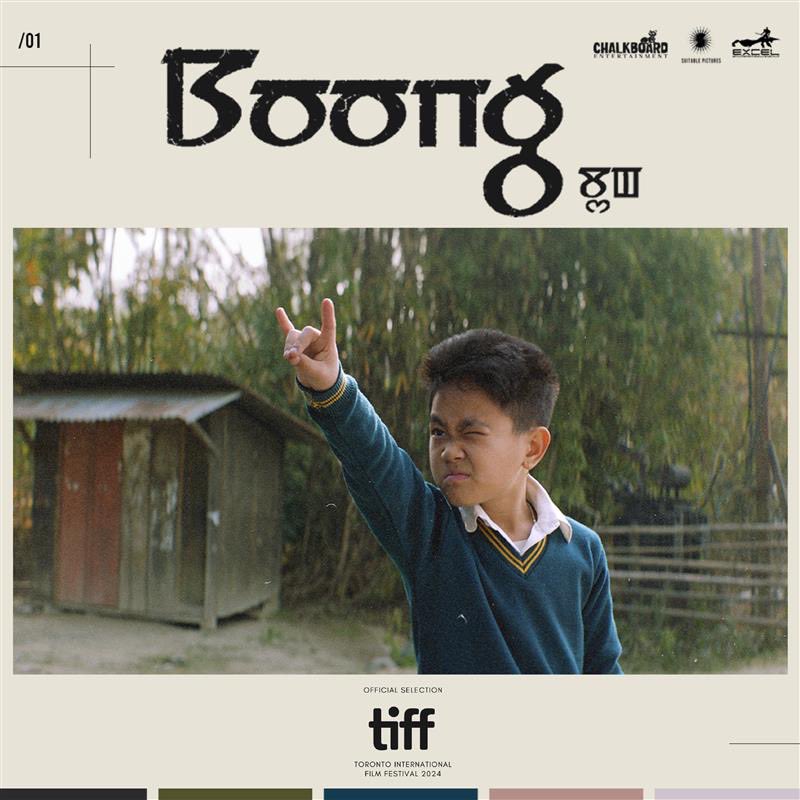
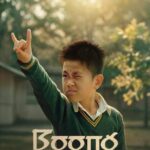





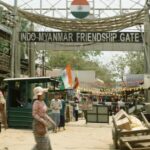
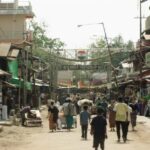


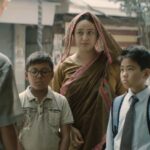



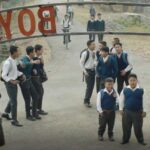

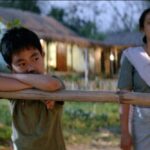





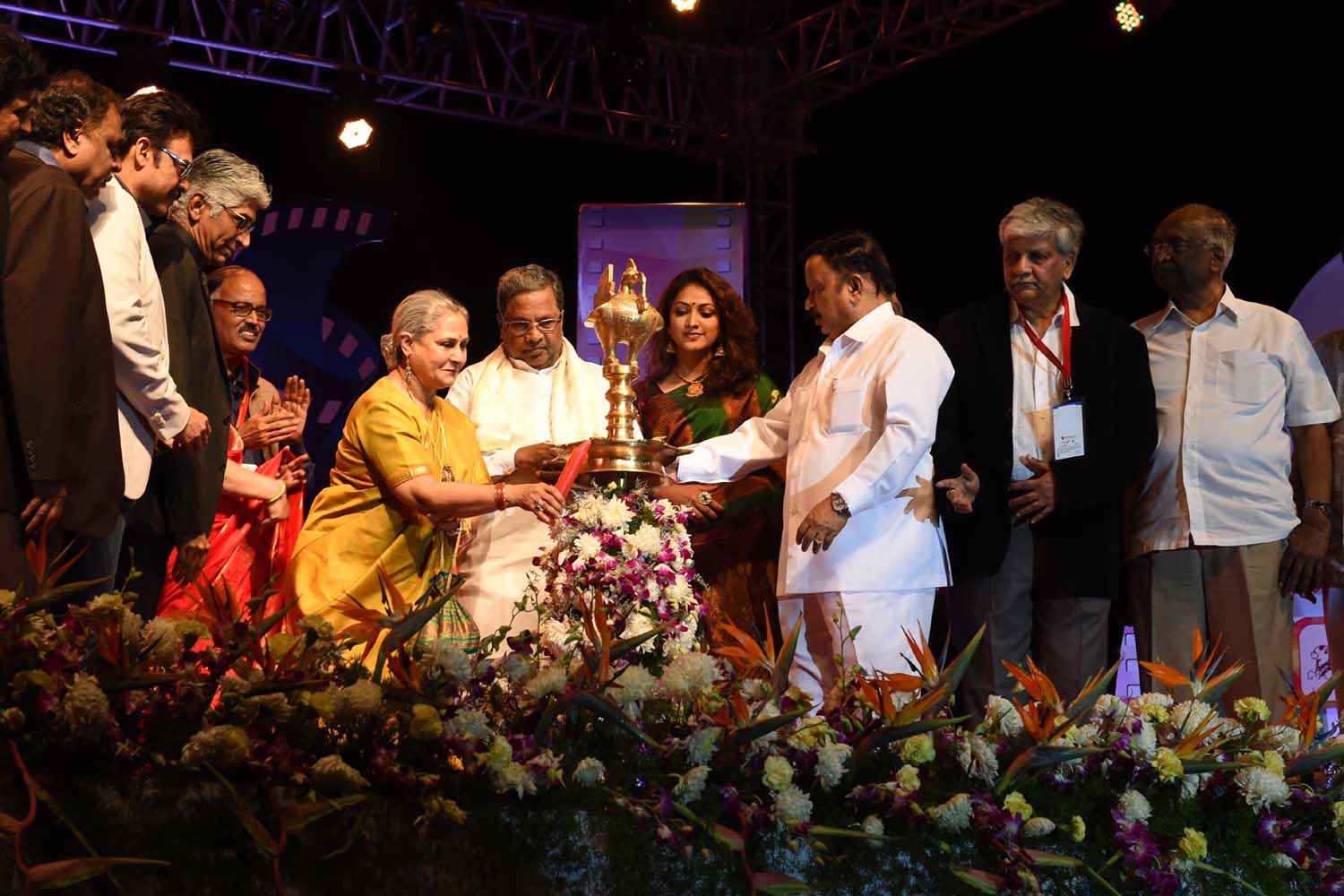
Leave a Reply